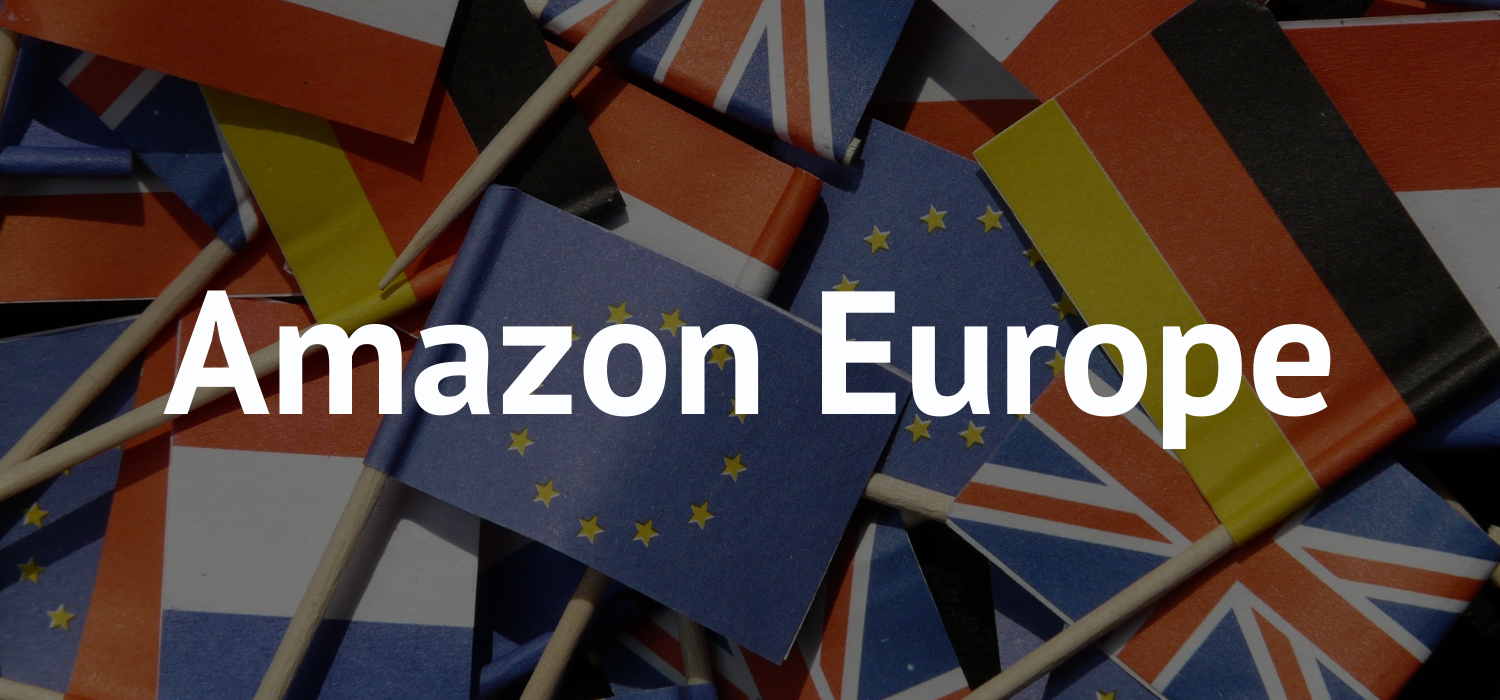Germany and the UK are some of the largest e-commerce countries in Europe. Amazon Europe is an excellent platform to start selling goods globally. After all, Germany is in demand due to fast delivery, and the UK, which is an English-speaking country, has a favorable geographical position.
With programs created by Amazon (for example, European Fulfillment Network or Multi-Country Inventory (MCI)), your goods will be much closer to German and British buyers when stored in warehouses in Germany and the UK.
Benefits of selling to Amazon Europe

- Attract millions of additional customers
Amazon European marketplaces allow you to sell products in 28 countries.
- Diversify your income stream
Increase your cash flow. Protect yourself from fluctuating sales on Amazon.com and take advantage of European holiday seasons and peak sales periods.
- Let Amazon take care of the order fulfillment details
Benefit from modern logistics, powerful tools and Amazon’s world-class customer service to simplify your international sales. This way you can focus on expanding your business.
- Be among the first
Compared to the US, Amazon’s European marketplaces are less competitive. So you have every chance to become the best seller in your niche!
What to sell to European markets?
Your best bet is to bring all your products that you sell to the US market. After all, it is very easy to bring your existing listings to Europe using the Amazon Build International Listings (BIL) tool. By the way, we’ve talked about how to launch Amazon Global Selling and build international listings here.
But! You need to make sure that your products comply with local European regulations and will be, so to speak, suitable in Europe. For example, a US electric plug may not match in many EU member states.
What is the difference between Amazon’s online business in the US and Europe?
Amazon has designed its marketplaces around the world to ensure that the sales process is consistent and the same no matter where you sell. Many of the services and processes that you are familiar with in the US, such as Fulfillment by Amazon (FBA), Prime, and Sponsored Products, work in a similar way on Amazon Europe markets.
However, due to differences in regulation, culture and language, each market is uniquely different. Here are some of the main ones to consider:
- Taxes – Every European country has tax requirements for the sale of goods to consumers.
- Product eligibility – When you choose an Amazon marketplace to sell, you need to understand if your product is eligible for that country. First of all, make sure you comply with all laws of each country. In addition, the standards for products in different countries, as we have already said, also differ.
- Languages - Amazon requires listings and customer support to be provided in the local language of the marketplace.
How to optimize shipping to Amazon Europe?
Attracting millions of new customers across Europe through Amazon can take your business to the next level. But shipping to the US is very different from shipping to Europe.
4 steps to optimize the delivery of goods to European markets
- Choose the right delivery partner
Given the complexity of international shipping, most sellers hire a freight forwarder to handle all the details, including door-to-door delivery, customs compliance, and insurance.
To avoid future problems, be careful when choosing an international shipping partner.
- Explore features and shipping options, including FBA and MFN
Take into account the following key considerations and requirements:
- In which countries do you plan to sell and therefore ship the item
- How do you plan to fulfill the order: FBA or MFN program
- Review taxes and duties, including paid and unpaid shipping fees
- Analyze customer expectations for shipping and returns
- Review the requirements, including import and export regulations.
- Regardless of which shipping method you choose, shipping to Europe is subject to specific requirements.
The two most important of these are the provision of information about the importer and the use of shipping duties. This is mainly the case for those who are responsible for paying fees such as import duties and taxes.
By the way, once you ship the item to Europe, you may have to pay Value Added Tax (VAT) upon arrival. For example, in the UK, the VAT rate on imports is currently 20%.
- Buy from suppliers for the best shipping rates
First, depending on the nature of your business, getting a competitive rate can be one of the most important factors in your profitability in Europe.
Second, it can take years to develop a relationship with a carrier that will allow you to receive discounts.
Third, sellers often find they can get good discounts on the carrier’s published rates by using a forwarder who already has a supplier relationship and large volumes of shipments.
Summing up
Launching a business in a new geographic region like Europe is serious business. However, your success in Europe will depend on many factors: effective niche, margins and regulatory requirements. In the early stages of the process, it is important to take the time to fully consider the pros and cons of selling in a new market.
Of course, if you are not ready to sell on all five marketplaces yet, then you can start with one or two.
For example, as we said, Germany and the UK are some of the largest e-commerce countries in Europe. So you can start with them!
0


